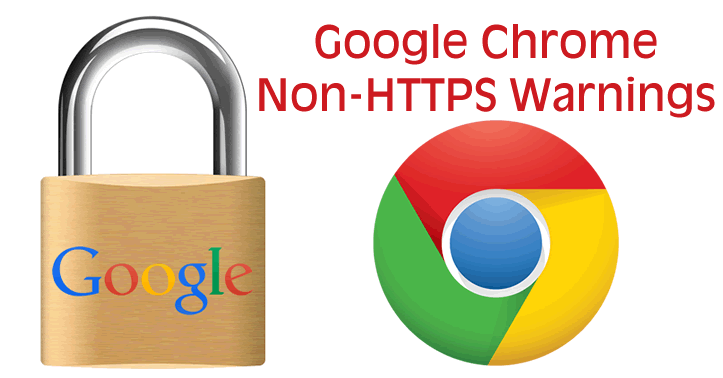 Webmasters will have one more reason why they should consider switching their sites to HTTPS as Google Chrome is planning to alert searchers when the site they are wanting to visit is unsecure via HTTPS.
Webmasters will have one more reason why they should consider switching their sites to HTTPS as Google Chrome is planning to alert searchers when the site they are wanting to visit is unsecure via HTTPS.
According to The Chromium Projects, the Google Chrome security team is proposing that the browser clearly states that HTTP webpages have no data security, with a planned transition in 2015.
Google Chrome currently has about 50% of the browser market – which means that for the average webmaster with a non-HTTPS site, they could potentially lose half of their traffic depending on how scary Google makes their non-secure warnings to users.
It is not clear what type of warning label Google wants to implement in Chrome. Would it be bold and scary or subtle? Would it be a pop-up alert? Would be something similar to the malware warning where Google places a warning page between the search results in the actual website, allowing users to make the decision about whether they really want to visit the site or not? Or would it be something subtle with a red icon where you would normally see a secure icon on the secured sites?
How will competitors such as Firefox or Internet Explorer will handle it if Google does go ahead with non-HTTPS security warnings? There are two ways this could go. They can either follow Google’s lead with the insecure alerts or they can capitalize on webmasters of non-HTTPS sites who might heavily suggest that chrome users download Firefox instead.
Many webmasters began transitioning their sites to HTTPS earlier this year after Google announced it would be used as a ranking signal. Later however, in Google backtracked slightly to state that it wasn’t a noticeable signal but it was something they recommended as good practice. But there is a huge difference between a minor ranking signal and Google alerting users that they might not want to visit your website – even a site that collects no personal data – because it’s unsecure.
However, there are many types of websites that don’t necessarily need to be secure. Information websites and personal blogs aren’t usually called collecting personal information that would require a secure connection for user safety. Back when HTTPS was first brought up as a ranking signal, there was a lot of confusion about whether or not content that could be affected. And Google did confirm at time that content sites were affected, so there’s no reason to think that Google would exclude content sites for this Chrome warning.
There’s also the issue that a lot of people would see an insecure warning and have no idea what it means and just wouldn’t visit the site “because Google said not to”. It is a higher technical level, and while some people might know they need to look for a lock symbol filling out personal information or payment details on the form, there’s a huge difference between that and displaying a warning that most people won’t understand exactly what it means. And that is the result in a huge loss of traffic from Chrome users.
It also raises the question as to whether Google is considering adding a warning to the search results as well, to alert searchers when a site they are wanting to visit isn’t secure. They do it now for malware, so it isn’t a stretch that they could do it for non-HTTPS to, in their quest to secure the web.
Many webmasters waited to see how the ranking boost when work out before they made the HTTPS switch when Google first announced it. And there were definitely some transition headaches that webmasters discovered as they moved to secure their sites. But one thing is clear, webmasters need to ensure they get their site secured before Google Chrome makes the transition, when they could potentially lose half their traffic if the warnings are scary enough to scare off most visitors.
Jennifer Slegg
Latest posts by Jennifer Slegg (see all)
- 2022 Update for Google Quality Rater Guidelines – Big YMYL Updates - August 1, 2022
- Google Quality Rater Guidelines: The Low Quality 2021 Update - October 19, 2021
- Rethinking Affiliate Sites With Google’s Product Review Update - April 23, 2021
- New Google Quality Rater Guidelines, Update Adds Emphasis on Needs Met - October 16, 2020
- Google Updates Experiment Statistics for Quality Raters - October 6, 2020
JASON BARNARD says
HI JENNIFER
SUPER POST
A NICE, OVERVIEW OF A SITUATION I WASN’T AWARE OF.
THX
JASON
PS – IRONICALLY, I JUST SUBMITTED MY EMAIL…. OVER AN INSECURE CONNECTION !!!!
JASON BARNARD says
Sorry about the all-caps !
MamboMan says
W
T
F
Borden says
As a Chinese behind GFW, I basically want all site https-ed. Only in https, a site can avoid being censored by the GFW. I believe most people live in free countries havn’t been aware of this function of https.
MamboMan says
We don’t do business in China.